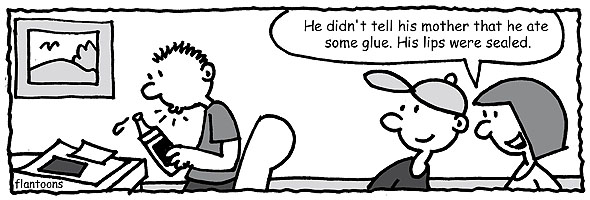
In British English they are called mobile phones; in American English they are called cell phones. Whichever term you prefer, I'm sure you have one! I've noticed English students arriving at our English schools usually bring their phones with them and if they don't, getting one as soon as they arrive is one of their first priorities!
When someone asks you a question, of course, they want an answer. Our problem is, that sometimes we don't have an answer for them, and saying "I don't know" is not good enough. Working in an English speaking workplace, there are other, more appropriate phrases we can use. Saying "I don't know" can make you seem unprofessional and it may make you seem uninterested in the question!
In English grammar, a pronoun is a word that is used instead of the noun.
A basic example is "Sarah is tall". In this sentence, Sarah is a noun. Because we know that Sarah is a girl, we can use the pronoun she and keep the same meaning - "She is tall".
It's time to test your knowledge of adjective + preposition combinations. Take a look at these common adjectives and choose the prepositions that normally follow them.
It's not easy to remember which preposition is used with which adjective - practice exercises like this are the best way to learn.
When you have finished, write your own example sentences using the correct adjective + preposition combinations. Did you get 10/10?
Among Christians in English speaking countries, today is known as Pancake Day (or officially Shrove Tuesday), as it is _A_ to eat pancakes. Although the celebration has its _B_ in relgion, you don't have to be a Christian to enjoy the day. Most people celebrate it for the pancakes and nothing more.

Today's cartoon is about the idiom someone's lips are sealed:
When you promise to keep something a secret you say my lips are sealed. It's something you say to let someone know that you will not tell anyone else what they have just told you.
"Don't worry, Joseph. I won't tell anyone what you told me. My lips are sealed."
February 14 is St. Valentine's Day; a day when lovers express their love for each other by giving flowers, gifts, and sending greeting cards (known as "valentines").
In honour of St. Valentine's Day, here are 5 idioms which use the word heart. These are not examples of romantic idioms. The heart idioms cover a number of situations.
When you learn something by heart, you learn it exactly and from memory.
So January, having finally got the message that nobody particularly likes it, has decided to go away and leave us in peace for another year, taking its howling winds, dull grey skies and surprise downpours with it. And now it’s February – an altogether better-behaved month than its miserable older brother. Sure, there may still be howling winds, dull grey skies and surprise downpours, but at least February gives the impression that they’ll be over sooner or later, and that the sun might just shine tomorrow.
Definition: Something that will cause an angry or violent reaction.